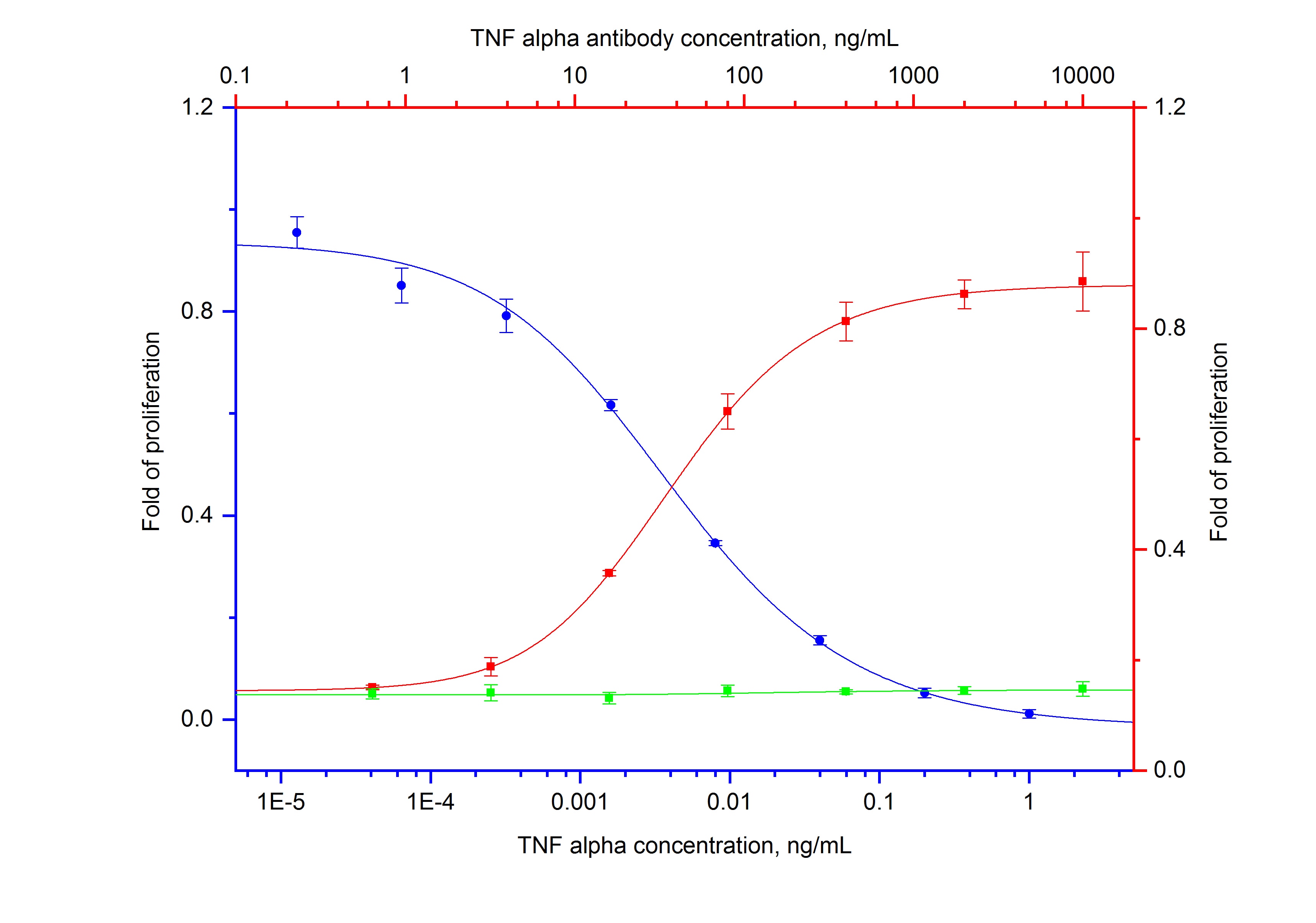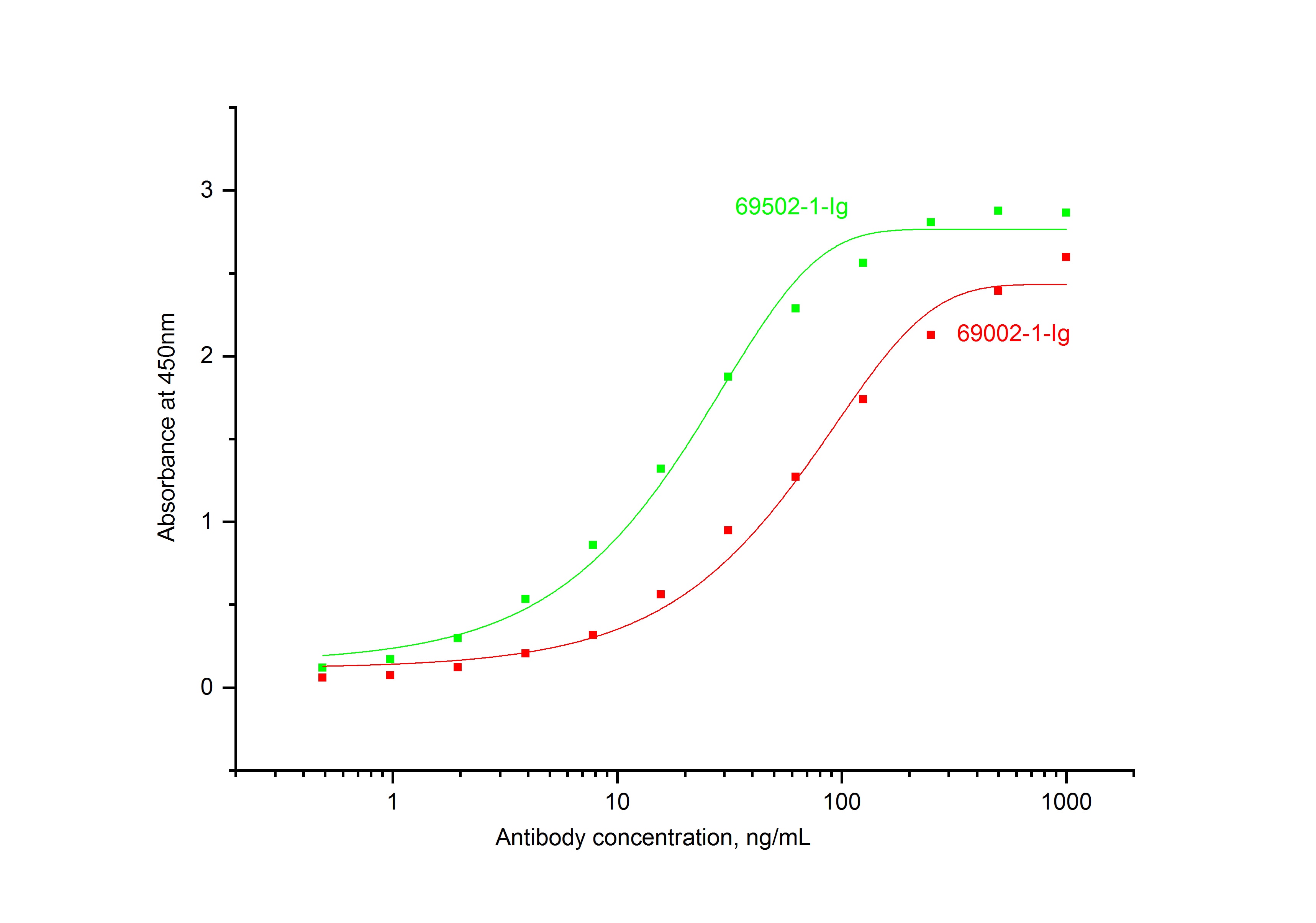Validation Data Gallery
| Neutralization |
Product Information
69002-1-Ig targets NeutraKine® TNF-alpha in Neutralization, ELISA applications and shows reactivity with human samples.
| Tested Reactivity | human |
| Host / Isotype | Mouse / IgG1 |
| Class | Monoclonal |
| Type | Antibody |
| Immunogen |
Product name: HumanKine® recombinant human TNF alpha protein Source: -derived, Tag: Sequence: 相同性解析による交差性が予測される生物種 |
| Full Name | tumor necrosis factor (TNF superfamily, member 2) |
| Gene Symbol | TNF-alpha |
| Gene ID (NCBI) | 7124 |
| ENSEMBL Gene ID | ENSG00000232810 |
| RRID | AB_2882920 |
| Conjugate | Unconjugated |
| Form | |
| Form | Lyophilized Powder |
| Purification Method | Protein G purification |
| UNIPROT ID | P01375 |
| Storage Buffer | Sterile PBS{{ptg:BufferTemp}}7.4 |
| Endotoxin | <0.1 EU/μg |
| Reconstitution | This product was lyophilized from a 0.2 μm filtered solution in PBS. Reconstitute at 1.0 mg/mL in sterile H2O before use. |
| Stability and Storage | Lyophilized antibodies are stable for 1 year from the date of receipt if stored between (-20°C) and (-80°C). Upon reconstitution we recommend that the solution can be stored at (4°C) for short term or at (-20°C) to (-80°C) for long term. Repeated freeze thaw cycles should be avoided with reconstituted products. |
Background Information
TNF, as also known as TNF-alpha, or cachectin, is a multifunctional proinflammatory cytokine that belongs to the tumor necrosis factor (TNF) superfamily. It is expressed as a 26 kDa membrane bound protein and is then cleaved by TNF-alpha converting enzyme (TACE) to release the soluble 17 kDa monomer, which forms homotrimers in circulation. It is produced chiefly by activated macrophages, although it can be produced by many other cell types such as CD4+ lymphocytes, NK cells, neutrophils, mast cells, eosinophils, and neurons. It can bind to, and thus functions through its receptors TNFRSF1A/TNFR1 and TNFRSF1B/TNFBR. This cytokine is involved in the regulation of a wide spectrum of biological processes including cell proliferation, differentiation, apoptosis, lipid metabolism, and coagulation. This cytokine has been implicated in a variety of diseases, including autoimmune diseases, INS resistance, and cancer.
This antibody can be used to neutralize the bioactivity of TNF alpha.
Publications
| Species | Application | Title |
|---|---|---|
Int Immunopharmacol Chronic kidney disease facilitates TNF-α + neutrophils dysfunction and progression in oral squamous cell carcinoma | ||
Cell Mol Gastroenterol Hepatol Fatty Acid Oxidation Promotes Apoptotic Resistance and Proinflammatory Phenotype of CD4+ Tissue-resident Memory T cells in Crohn's Disease | ||
Int J Mol Sci Cancerous Conditions Accelerate the Aging of Skeletal Muscle via Mitochondrial DNA Damage |


